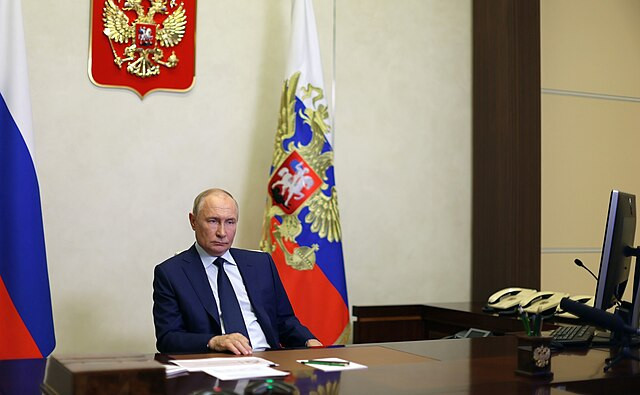Russian forces have captured the critical eastern Ukrainian town of Vuhledar, marking a significant blow to Ukraine's defenses as the country braces for its third wartime winter. This development underscores the continued challenges Kyiv faces in resisting Russia's incremental advances in the east, further complicating efforts to reclaim territory lost since the war began.
Vuhledar, once home to around 14,000 residents, has been reduced to ruins, with recent footage verified by CNN showing Russian troops raising their flag over the destroyed town hall. Ukrainian military officials confirmed their decision to withdraw from Vuhledar, citing the threat of encirclement after Russian forces managed to reinforce their flanks with additional troops.
"The decision to withdraw was made to save personnel and military equipment," the Ukrainian military said in a statement, acknowledging the mounting pressure as Russia increased its foothold in the region. The loss of Vuhledar highlights a key strategic victory for Russian President Vladimir Putin, whose ongoing objective is to secure the entirety of the Donbas region. This victory not only weakens Ukraine's defenses but also exposes broader vulnerabilities in its military strategy.
Vuhledar, situated south of Pokrovsk, had been fortified as a crucial defensive position along Ukraine's eastern and southern fronts. While not as strategically vital as larger logistical hubs like Pokrovsk, Vuhledar's elevated terrain made it an essential stronghold. Its fall is reminiscent of the earlier loss of Avdiivka in February, both of which were captured by Russian forces after months of intense fighting and heavy casualties on both sides.
Russian military bloggers, such as Boris Rozhin, have emphasized the significance of the victory in Vuhledar. Rozhin described the capture as "operational, if not operational-strategic," due to the town's position at the junction of the Zaporizhzhia and Donetsk fronts, which posed a constant threat to Russian forces operating near Mariupol. Similarly, Russian war correspondent Voenkor Kotenok expressed the bittersweet nature of the victory, noting the heavy toll the battle for Vuhledar took on Russian troops. "It's painful," he said, adding that the fierce resistance in the town "drank a lot of blood."
The fall of Vuhledar comes at a critical time for Ukraine, just as President Volodymyr Zelensky returned from meetings with U.S. President Joe Biden, where he sought additional military aid. While Zelensky secured promises of further assistance, he left without the NATO-style security guarantees or the permission to use Western missiles on Russian soil that he had hoped for. This latest military setback adds urgency to Ukraine's pleas for more robust international support.
The loss also underscores the manpower challenges Ukraine continues to face, even after implementing mobilization laws earlier this year. The battle for Vuhledar, which saw Ukrainian soldiers withdrawing under heavy Russian fire, highlights the overwhelming force Russia can still muster, despite heavy casualties and ongoing logistical challenges.
Ukrainian military blogger Stanislav Buniatov expressed frustration over the retreat, writing on Telegram, "I confidently said that one would have to be a moron to allow our guys to be surrounded, but someone did." Buniatov also recounted harrowing details of soldiers withdrawing in small groups under fire from Russian drones, with some wounded troops left behind, adding to the emotional toll of the defeat.
Russia's capture of Vuhledar comes amid its broader push to solidify control over eastern Ukraine. Moscow's forces are advancing along several key sectors in the Donetsk region, including near the logistics hub of Pokrovsk, where intensified fighting continues. According to Ukraine's General Staff, there were 142 combat clashes reported on the previous day, with most occurring on the Pokrovsk and Kurakhove fronts.
General Oleksandr Syrskyi, commander of Ukraine's armed forces, responded to the loss by ordering defenses to be bolstered across the eastern Donetsk region. Syrskyi visited troops on the front lines and emphasized the importance of stabilizing the defensive lines in the region. "While working in the brigade, I made a number of decisions aimed at strengthening the stability and effectiveness of our defense," Syrskyi said.
The loss of Vuhledar marks another troubling milestone for Ukraine, as Russian forces continue to push westward and chip away at Ukrainian defenses. With winter approaching and Russian attacks on Ukraine's energy infrastructure ongoing, the International Energy Agency has warned that this winter will be "by far, its sternest test yet."




